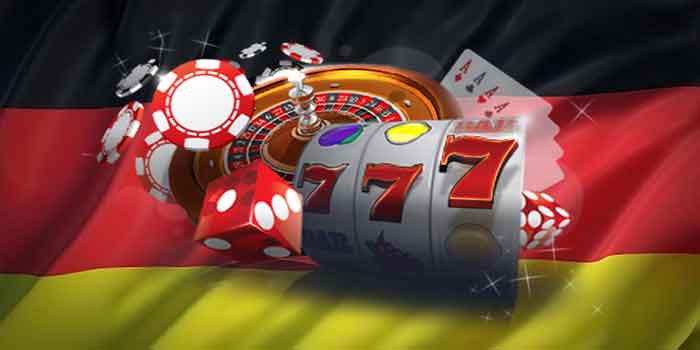Online gambling is only allowed at a designated online casino, and land based gambling is facilitated at Casino du Liban in Jounieh. Additionally, a casino ship often takes players into international waters where they can gamble freely without the worry of breaking local laws. Last week the Minister-Presidents of Germany have voted to ratify the new regulatory rules for the gambling industry, which will come into effect next year and see regulated online betting offered in the country. The meeting took place remotely and occurred from October 28th to the 30th, and saw the heads voting on the different rules of operation. Online Gambling Law in Germany Online gambling is mostly outlawed in Germany. Although the provision of almost any kind of online gambling to German players is technically forbidden under German law, Germany is one of the biggest online gambling markets in the world. After years of uncertainty, and more recently threats of a regulated online sports betting market to the exclusion of online casino, it seems Germany may have arrived at a political consensus which could see regulated online casino and sports betting from 2021. Read the full article here.
By Valentina Pop
Decisions on who can open and shut down a casino, a lottery or an online gambling site remain at national level, but there is a trend to more unified rules across EU's 28 member states.
The gambling sector is a very profitable business, with revenues of over €80 billion a year.
Read and decideBecome an expert on Europe
Get instant access to all articles — and 20 years of archives. 14-day free trial.
Choose your plan
... or subscribe as a group
20th anniversary



We celebrate 20 years of independent, expert news on Europe. Become an expert on Europe yourself.
Why join?
Watch our editor-in-chief Koert Debeuf explain the reasons in this 30-second video.
Online gambling is the fastest rising sector with revenues expected to reach €13 billion next year, compared to €9.3 billion in 2011. Despite its cross-border nature, the licensing system and specific rules governing online gambling remain national.
Neither is the EU involved in specifically regulating the activity of casinos or lotteries. The only cases it can pursue and take governments to court for are breaches of the single market legislation by state-owned lotteries or other gambling outfits that abuse their dominant position.
Some members of the European Parliament and the umbrella association for the gambling industry – the European Gaming and Betting Association – have made the case for harmonised legislation across the EU, in order to increase transparency and revenues that are currently hindered by the fragmentation into 28 smaller national markets each with its peculiarities.
Jurgen Creutzmann, a German Liberal MEP who drafted one of the Parliament's reports on online gambling, told this website that the move towards a more harmonised system is still far away.
'The subsidiarity principle applies. So states can still have monopolies or move towards a license system – a trend that can be seen in most EU countries in the past few years. But then they have to abide by the rulings of the European Court of Justice in terms of transparency when giving licenses and a level playing field,' Creutzmann said.
But he also noted that several member states who scrapped their state monopolies have not done much to allow for competition on the gambling market. Germany for instance moved to a licensing system, but said it will only hand out about 20 licenses, despite there being nearly 100 interested operators and the German market the largest in Europe.
Online Gambling Banned In Germany
'I am sure the German law will be proven in breach of EU law,' Creutzmann said in reference to an inquiry launched by the EU commission which may end with Berlin being taken to the ECJ.
'Match fixing, money laundering, fair competition – you can't solve all these things unless you have European solutions. When all member states will have licenses – and almost all have moved to that – then Europe can play a better role,' Creutzmann said.
With the Barroso commission coming to the end of its term this year, it is unlikely that the European executive will move on proposing binding legislation on harmonising gambling rules.
The commissioner in charge of internal market, Michel Barnier, has come up with 'soft legislation' – non-binding proposals and studies aimed at encouraging national governments to streamline their legislation according to the ECJ rulings.
Online Gambling Law In Germany Us Military
On one aspect of gambling – possible money laundering – the EU is moving to a single set of rules as part of an overhaul of the anti-money laundering directive, which the EU commission and the European Parliament want to expand to online and offline gambling services.
Countries with a high stake in gambling, such as Malta, already have signalled opposition to the revised rules.
Online Gambling Regulation Germany
Five out of Malta's total of six MEPs voted against the proposed rules after having consulted with the government on the matter.
Maltese Labour MEP Marlene Mizzi said she voted against these 'draconian rules' for fear of its 'repercussions on Malta's financial services'.

We celebrate 20 years of independent, expert news on Europe. Become an expert on Europe yourself.
Why join?
Watch our editor-in-chief Koert Debeuf explain the reasons in this 30-second video.
Online gambling is the fastest rising sector with revenues expected to reach €13 billion next year, compared to €9.3 billion in 2011. Despite its cross-border nature, the licensing system and specific rules governing online gambling remain national.
Neither is the EU involved in specifically regulating the activity of casinos or lotteries. The only cases it can pursue and take governments to court for are breaches of the single market legislation by state-owned lotteries or other gambling outfits that abuse their dominant position.
Some members of the European Parliament and the umbrella association for the gambling industry – the European Gaming and Betting Association – have made the case for harmonised legislation across the EU, in order to increase transparency and revenues that are currently hindered by the fragmentation into 28 smaller national markets each with its peculiarities.
Jurgen Creutzmann, a German Liberal MEP who drafted one of the Parliament's reports on online gambling, told this website that the move towards a more harmonised system is still far away.
'The subsidiarity principle applies. So states can still have monopolies or move towards a license system – a trend that can be seen in most EU countries in the past few years. But then they have to abide by the rulings of the European Court of Justice in terms of transparency when giving licenses and a level playing field,' Creutzmann said.
But he also noted that several member states who scrapped their state monopolies have not done much to allow for competition on the gambling market. Germany for instance moved to a licensing system, but said it will only hand out about 20 licenses, despite there being nearly 100 interested operators and the German market the largest in Europe.
Online Gambling Banned In Germany
'I am sure the German law will be proven in breach of EU law,' Creutzmann said in reference to an inquiry launched by the EU commission which may end with Berlin being taken to the ECJ.
'Match fixing, money laundering, fair competition – you can't solve all these things unless you have European solutions. When all member states will have licenses – and almost all have moved to that – then Europe can play a better role,' Creutzmann said.
With the Barroso commission coming to the end of its term this year, it is unlikely that the European executive will move on proposing binding legislation on harmonising gambling rules.
The commissioner in charge of internal market, Michel Barnier, has come up with 'soft legislation' – non-binding proposals and studies aimed at encouraging national governments to streamline their legislation according to the ECJ rulings.
Online Gambling Law In Germany Us Military
On one aspect of gambling – possible money laundering – the EU is moving to a single set of rules as part of an overhaul of the anti-money laundering directive, which the EU commission and the European Parliament want to expand to online and offline gambling services.
Countries with a high stake in gambling, such as Malta, already have signalled opposition to the revised rules.
Online Gambling Regulation Germany
Five out of Malta's total of six MEPs voted against the proposed rules after having consulted with the government on the matter.
Maltese Labour MEP Marlene Mizzi said she voted against these 'draconian rules' for fear of its 'repercussions on Malta's financial services'.
Even if the majority of MEPs voted in favour of these rules, a deal with member states is still pending and only likely to be achieved towards the end of the year, once the new EU Parliament and commission are in place.
, your membership gives you access to all of our stories. We highly appreciate your support and value your feedback. If you have any thoughts on this story, we would love to hear it.

